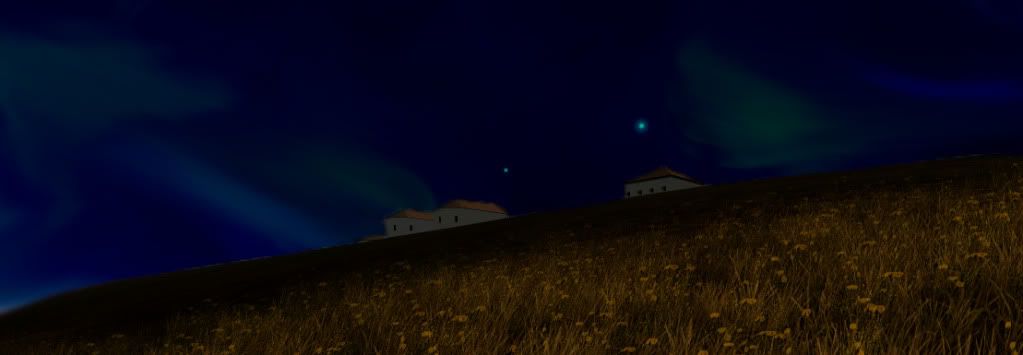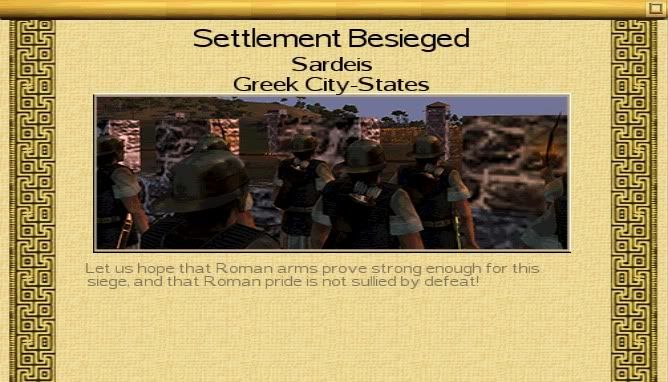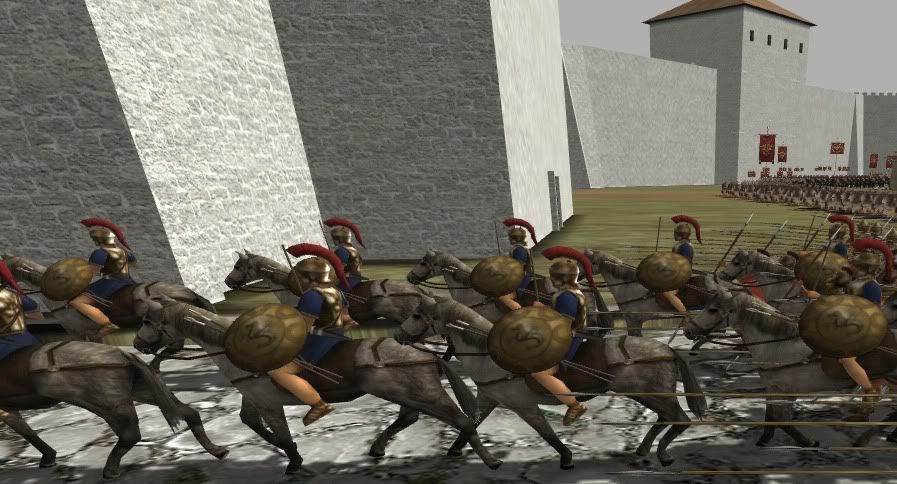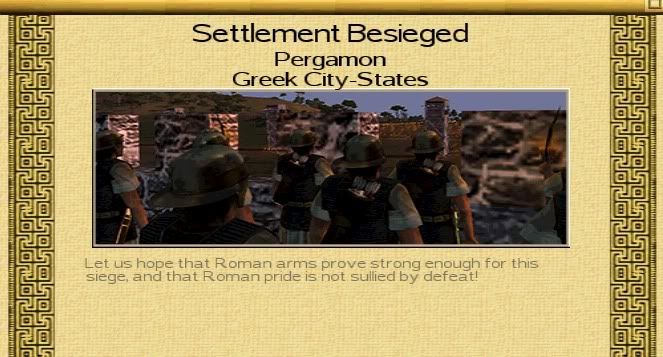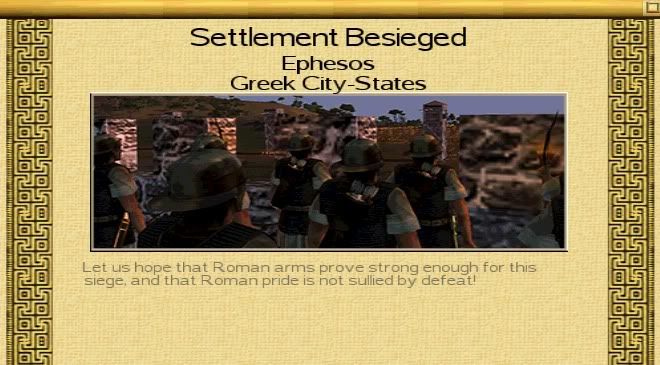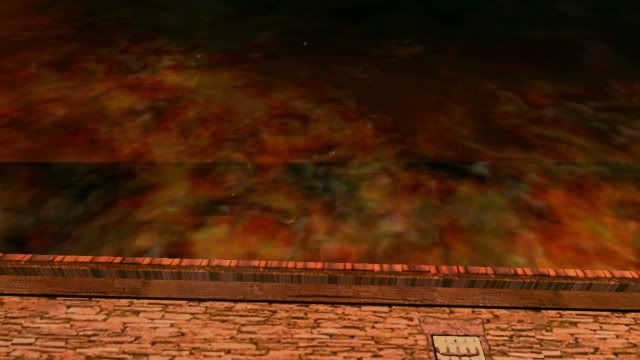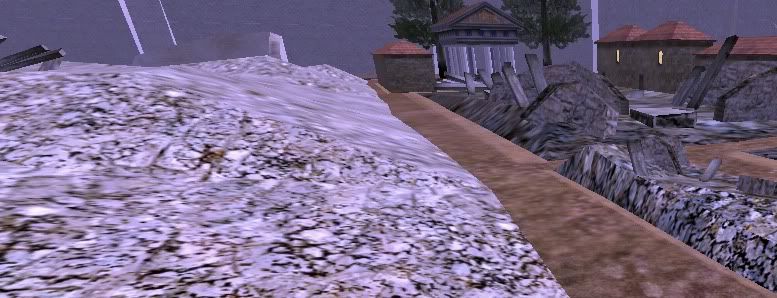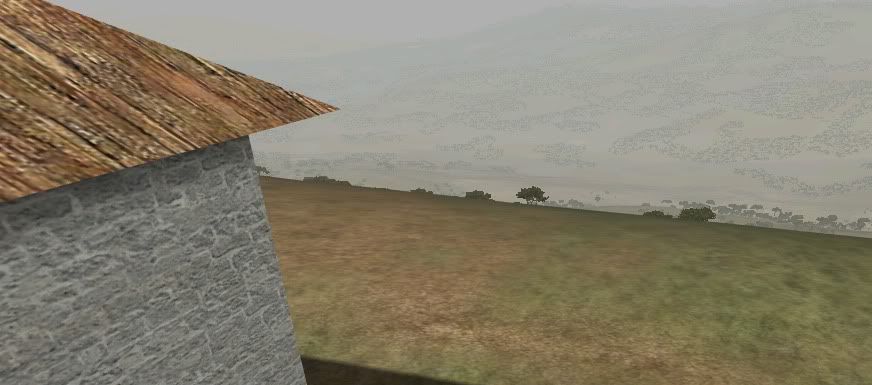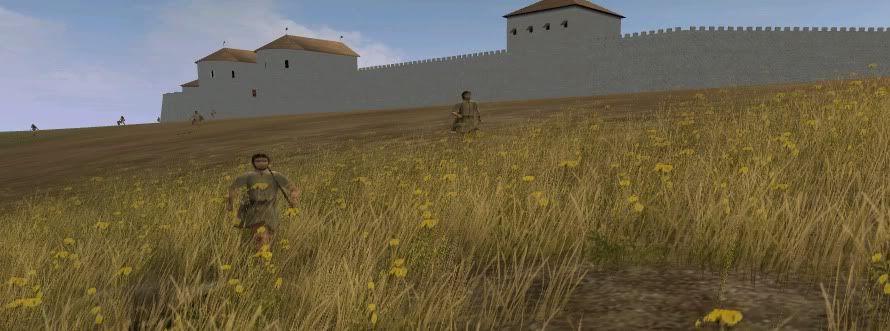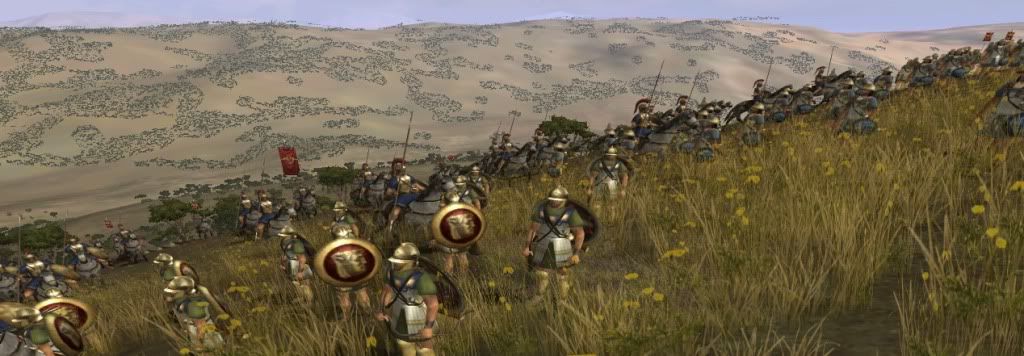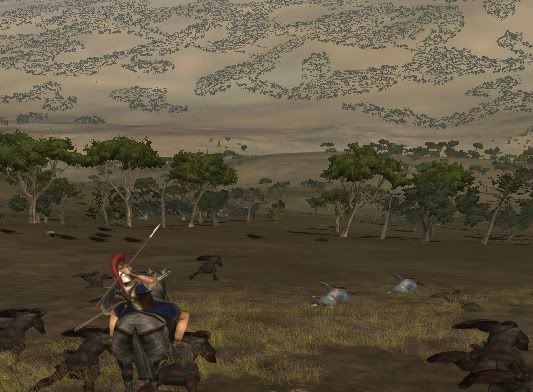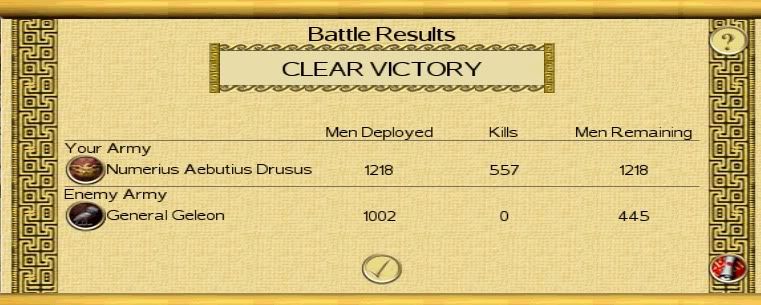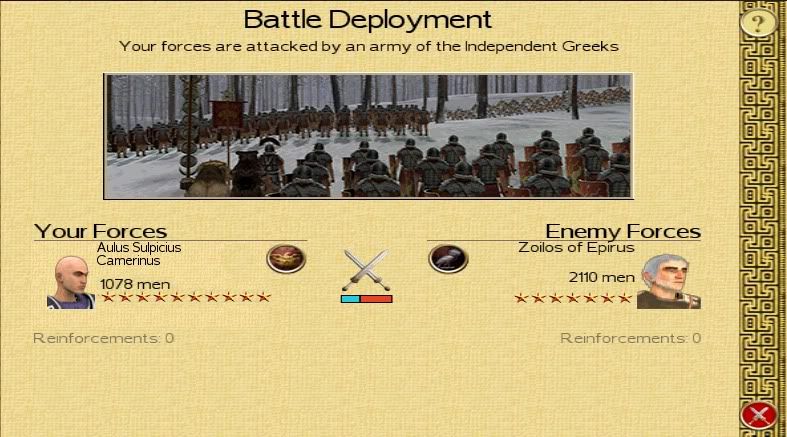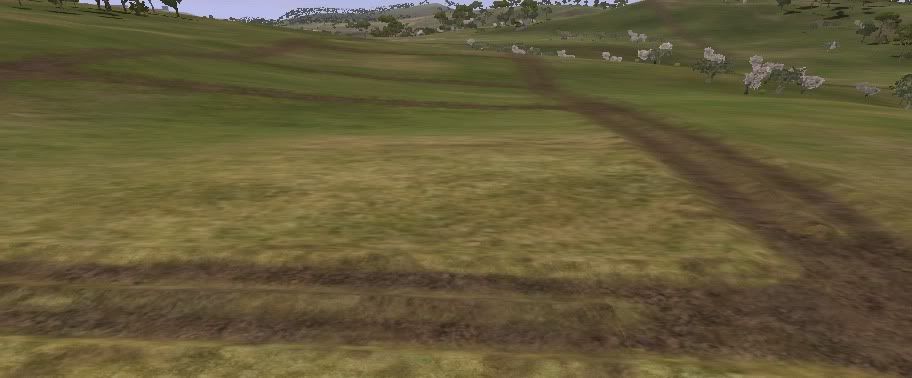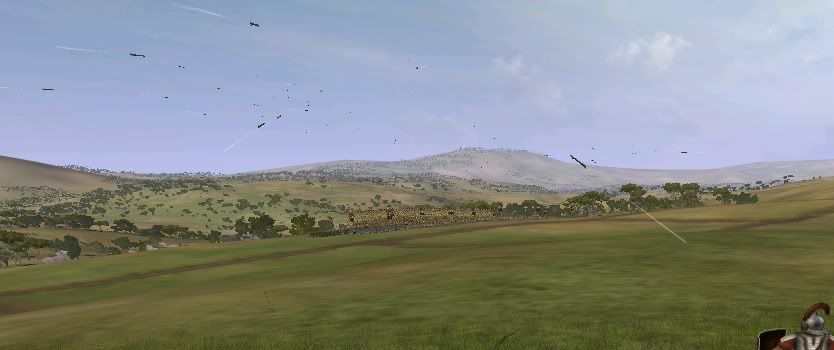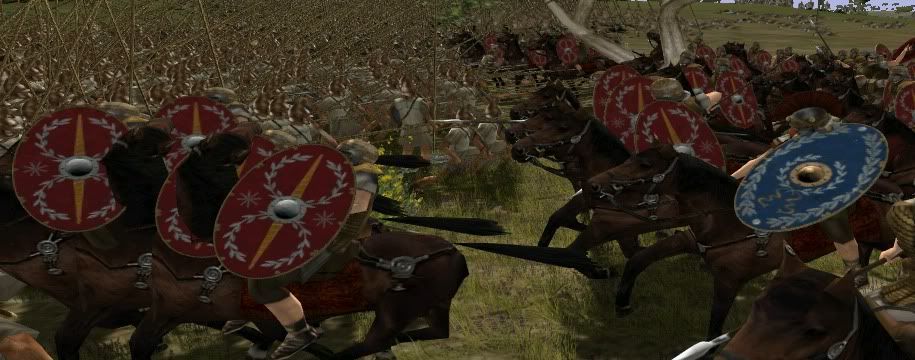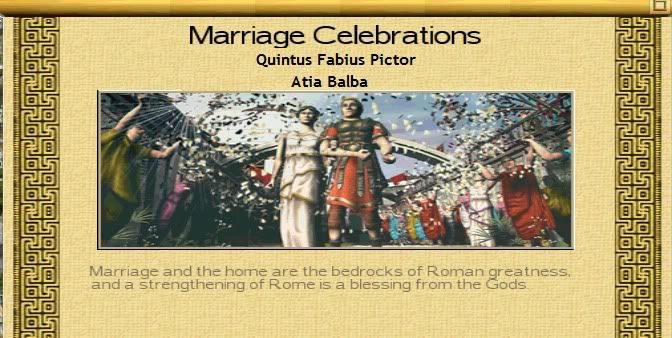Oh my, I hope the itch won't take too long to scratch
And I think I want to hold off on this month's MAARC so I can have a chance of actually competing alongside with you this time rather than always remaining in your shadow from month to month.
On another note:
I think the jig is almost up for the time period of the Kingdom of Ionia. Does any intrepid reader care to guess exactly which time period this is set in? Hint: the word "Greek" is used very loosely here.








 Reply With Quote
Reply With Quote